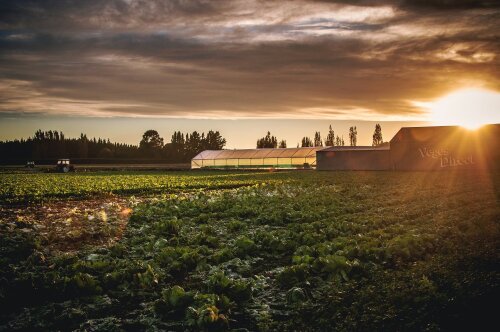Best Agriculture Lawyers in Rangiora
Share your needs with us, get contacted by law firms.
Free. Takes 2 min.
List of the best lawyers in Rangiora, New Zealand
About Agriculture Law in Rangiora, New Zealand
Rangiora sits in the Canterbury region and is part of the wider New Zealand agricultural sector. Agriculture law covers how land, water, animals and crops are managed under national and local rules. It blends national statutes with regional and district plans to regulate farming activities in Rangiora and the surrounding Canterbury area. Understanding both levels is essential for farmers, landowners and agribusiness operators in the district.
Key legal themes include environmental protection, animal welfare, biosecurity, and workplace safety on farms. Regional councils like Environment Canterbury (ECAN) administer resource management rules for water takes, discharges, and land use. Local councils such as Waimakariri District Council implement district planning rules that affect farming operations near towns and residential areas. National laws set the baseline standards that all regional and local bodies apply.
Because rules change with environmental reforms and policy updates, a Rangiora solicitor or legal advisor who specialises in agriculture can help you interpret complex requirements and anticipate regulatory changes. This guidance is particularly important when applying for consents, defending enforcement actions, or negotiating with authorities.
Why You May Need a Lawyer
These scenarios reflect real-world considerations for Rangiora residents and farmers dealing with agriculture law.
- You need to obtain or renew a resource consent for farm effluent discharge or irrigation practices governed by the RMA and ECAN rules.
- Your farming operation faces a compliance notice or enforcement action for environmental breaches, such as water quality or soil disturbance.
- You plan to take substantial water from a surface or groundwater source and require a formal water take permit with conditions that impact timing, volumes or chemical use.
- You are negotiating a plan change or subdivision on farmland that could affect dairy, orchard or cropping operations and require expert local interpretation of the district plan.
- You are dealing with animal welfare inspections or notices under the Animal Welfare Act, and need representation or defence in negotiations or hearings.
- You must implement pest and biosecurity measures on a farm and require advice on compliance, notification duties, and possible exemptions.
Each scenario involves procedural steps, timelines and potential costs. A solicitor can help you gather the right documents, communicate with councils, and negotiate consent conditions that align with your farming goals. They can also coordinate with other professionals, such as agronomists or environmental consultants, to strengthen your position.
Local Laws Overview
Rangiora farming activities are governed by a mix of national statutes and local plans. The most influential national acts provide the framework for environmental management, animal welfare and biosecurity. Local councils interpret and apply these laws through district plans and regional plans specific to Canterbury and the Waimakariri area.
Resource Management Act 1991 - This Act forms the cornerstone of environmental regulation in New Zealand. It requires resource consents for activities that may affect the environment, including discharges to land or water and certain land uses. It remains the baseline for regional and district plan rules and consent processes. For the text and updates, you can explore NZ government resources at legislation.govt.nz.
Animal Welfare Act 1999 - This Act sets minimum standards for the care and welfare of animals, including farm livestock. It establishes duties for animal owners and penalties for neglect or abuse. Official information and guidance are available through NZ legislation resources and MPI materials on animal welfare.
Biosecurity Act 1993 - This law governs pest and disease control to protect plants, animals and the environment. It gives powers to detect, contain and eradicate pests; it also governs import requirements and border controls relevant to farming operations. See NZ government guidance for biosecurity at Ministry for Primary Industries.
Canterbury region and Rangiora-specific administration is handled by local bodies, notably Environment Canterbury for environmental plans and water management, and Waimakariri District Council for local zoning and resource consents. Recent reforms in freshwater management and plan changes affect farming operations across Canterbury and the Rangiora area. For Canterbury-focused planning, see Environment Canterbury resources at Environment Canterbury.
Resource consents are required for activities that affect the environment, including discharges, water takes, and land use changes.
For more detailed guidance on how these processes interact locally, refer to ECAN and NZ Legislation resources linked above. These sources provide authoritative explanations of consent processes and statutory duties.
Frequently Asked Questions
What is a resource consent in Rangiora?
A resource consent is a regulatory permission to undertake activities that may affect the environment. It covers discharges to land or water, water takes, and certain land uses on farm properties.
How do I apply for a resource consent in Rangiora?
Apply through Environment Canterbury or the relevant territorial authority. You will need a project description, site plans, and evidence of environmental impact assessments where required.
What costs should I expect for a consent application?
Costs include processing fees paid to the council, potential expert reports, and any consultant fees. Processing times vary with complexity and council workloads.
How long does the consent process usually take?
Simple applications may take weeks; complex matters can run several months. Processing times depend on the information provided and any hearings or expert input required.
Do I need a lawyer to apply for consents?
While not mandatory, a solicitor with agriculture and resource management experience can help you prepare the application, anticipate likely conditions and manage the hearing process.
What is the difference between a district plan and a regional plan?
A regional plan covers environmental matters that span large areas, including water resources. A district plan focuses on land use within a local council area, such as zoning and subdivision rules in Rangiora.
Is there a risk of penalties for environmental breaches?
Yes. Breaches can lead to notices, enforcement actions, or penalties. A lawyer can help you respond quickly and negotiate mitigations or penalties with authorities.
Do I still need consents if I change farming practices on my land?
Changes that affect discharge, drainage, water use or land stability may require new or amended consents. It is important to check with ECAN or your local council before making changes.
What should I prepare before meeting a lawyer?
Prepare property details, maps, existing consents, recent correspondence with councils, and a clear outline of your farming practices and goals.
Can a lawyer help with a complaint from a neighbour?
Yes. A lawyer can help you respond to complaints, review compliance with consent conditions, and negotiate settlements where appropriate.
Should I consider a plan change or subdivision on farmland?
Plan changes or subdivisions involve both regional and district rules. A solicitor can assess feasibility and guide you through submissions and hearings.
Additional Resources
These government and official resources provide authoritative information for agricultural matters in Rangiora and Canterbury.
- Environment Canterbury (ECAN) - Canterbury regional council governing water management, environmental plans, and resource consent processes in the region. Website: ecan.govt.nz
- Ministry for Primary Industries (MPI) - National guidance on biosecurity, animal welfare, plant health and farm compliance. Website: mpi.govt.nz
- NZ Legislation - Official access to New Zealand statutes and regulations, including RMA, Animal Welfare, and Biosecurity acts. Website: legislation.govt.nz
Next Steps
- Clarify your farming objectives and the specific legal issues you face (eg, water takes, discharges, or animal welfare concerns). Set a realistic timeline for your goals over the next 6 to 12 months.
- Identify potential agriculture lawyers in Rangiora with local experience in environmental and regulatory matters. Consider consulting at least two firms to compare approaches and fees.
- Arrange a paid initial consultation to discuss your case, gather required documents, and outline a strategy. Ask about fees, timelines, and expected outcomes.
- Provide your chosen solicitor with detailed farm maps, consent documents, correspondence with ECAN or the district council, and any expert reports you have or will obtain.
- Develop a formal engagement letter and cost estimate. Confirm who will handle your file, what work is included, and how communications will occur.
- Coordinate with relevant professionals (environmental consultants, agronomists, or land surveyors) if technical reports are needed for a consent or hearing.
- Proceed with the agreed plan, keeping track of milestones and adjusting as regulations or plans change. Expect updates when councils issue new information or plan changes.
Lawzana helps you find the best lawyers and law firms in Rangiora through a curated and pre-screened list of qualified legal professionals. Our platform offers rankings and detailed profiles of attorneys and law firms, allowing you to compare based on practice areas, including Agriculture, experience, and client feedback.
Each profile includes a description of the firm's areas of practice, client reviews, team members and partners, year of establishment, spoken languages, office locations, contact information, social media presence, and any published articles or resources. Most firms on our platform speak English and are experienced in both local and international legal matters.
Get a quote from top-rated law firms in Rangiora, New Zealand — quickly, securely, and without unnecessary hassle.
Disclaimer:
The information provided on this page is for general informational purposes only and does not constitute legal advice. While we strive to ensure the accuracy and relevance of the content, legal information may change over time, and interpretations of the law can vary. You should always consult with a qualified legal professional for advice specific to your situation.
We disclaim all liability for actions taken or not taken based on the content of this page. If you believe any information is incorrect or outdated, please contact us, and we will review and update it where appropriate.









